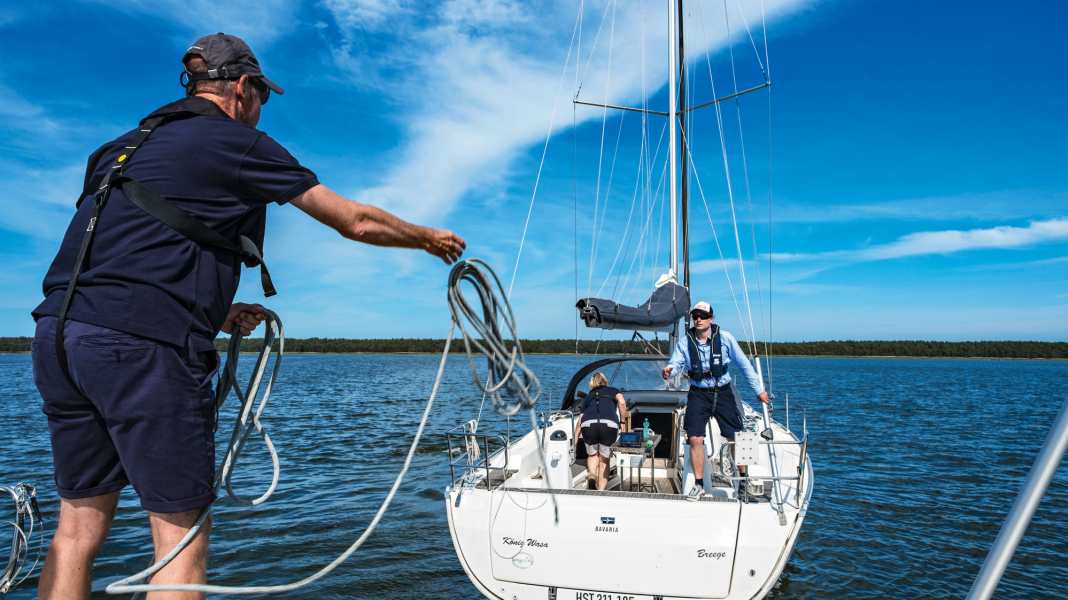Insurance: Towing assistance vs. recovery - which is which?
Pantaenius Yachtversicherungen
· 29.07.2025

In a loose series, we therefore address the most frequently asked questions - and misunderstandings - about yacht insurance. In the first instalment, with the help of Dirk Hilcken from the boat insurance broker Pantaenius yacht insurance the fundamental Sense and purpose of a liability and comprehensive policy for the ship.
The second episode was all about the question, how high a ship should be secured. Especially if you buy a second-hand boat. Episode three dealt with the question, whether and to what extent older yachts should be insured. And in episode four we clarified, what the so-called personal effects are all about.
Old yachts, mast breakage, single-handed sailing - insured or not?
The question of whether Torn sails and mast breakage covered by insurance we answered in episode five. Lastly, we addressed the question, whether single-handed sailing is unseamanly and if so, what that means.
Today we are going to look at the topic of towing assistance and recovery: What is the difference? And what needs to be considered in which case in order to avoid being confronted with horrendous recovery costs.
Dirk Hilcken explains:
Have you run aground or do you need towing assistance due to a technical defect? Then the most important thing is to keep calm despite being unable to manoeuvre. It may be possible to bring a sailing yacht into harbour under sail - perhaps with a reduced sail area. If you are close to a harbour, you can call the harbour master or charter company and ask for towing assistance.
Towing or recovery, which is which?
On the other hand, if you find yourself unable to manoeuvre in a dangerous situation, for example in the navigation channel for commercial shipping, you have little time to react. In such a case, you should make nearby water sports enthusiasts aware of your situation as quickly as possible and ask for help. A well-known method is to stand on the foredeck and wave vigorously with mooring lines. It is also possible to make contact with other water sports enthusiasts via VHF channel 16.
In addition to the technical equipment, the terms towing and recovery need to be clearly defined. However, it is not always possible to clearly define where exactly towing ends and recovery begins. For example, towing assistance should be granted to a sailor who sails with an unclear engine to a harbour and then allows himself to be towed in. This ship is clearly not in danger and there is no threat of danger. A salvage operation, on the other hand, involves rescue from immediate danger. For example, a sailing yacht with an unclear engine drifting towards a rocky coast is in danger, even if it has not yet grounded.
How are salvage wages measured?
Anyone who successfully helps another person out of a distress at sea can claim a salvage reward. When a yacht is salvaged, the amount is calculated according to criteria such as the salvaged values, the salvager's effort and risk, the weather and regional conditions as well as the salvage measures. Ships are sometimes detained in order to secure payment. Negotiations on the final salvage payment can drag on for years.
More about boat insurance:
- Break-in, collision, accident: Checklist for the correct procedure
- What to do in the event of damage? Prevention, mitigation, settlement
- The right policy for everyone: 7 sailor types at a glance
- Attention, trap! How to read the small print
- Legal advice: The most important answers in the interview
- Contract types: What policies are available
As a layman can hardly judge the above criteria, Pantaenius strongly advises owners not to negotiate a salvage fee. Under no circumstances should you discuss specific sums or ship values or sign an agreement. Instead, you should contact the insurer as soon as possible and let them negotiate. The Pantaenius claims department, for example, is available around the clock, has extensive experience in such situations and an extensive network of reputable salvage companies.
How do you fend off excessive recovery claims?
Unfortunately, private salvage companies repeatedly try to use the value of the ship as the basis for the salvage fee and not their own expenses. Hull insurance protects against this. This should cover salvage costs without a limit on the amount. The hull insurer would also fight out any legal disputes with the salvor and assume the guarantee payments that have to be deposited in order to get the ship free again. However, the terms and conditions of the providers sometimes differ considerably. It can therefore be worth taking a look at the small print.
If it is an acute emergency situation and the salvor insists on an agreement immediately, it is advisable to agree exclusively on the so-called "Lloyd's Open Form" (LOF). This open form of contract is internationally recognised and can even be agreed simply by calling out. The LOF also includes an arbitration agreement on the basis of "no cure - no pay", which provides greater legal certainty for subsequent disputes.
The expert:

Latest news on the subject of boat insurance:
- Boat crime on the rise in Mecklenburg-Vorpommern
- Providers on a new course: changes in the German and Austrian boat insurance market
- New international travel health insurance for blue water sailors
- OSTSEE STURMFLUT Will the insurance companies pay for the damage?
- CHARTER-SPECIAL Properly insured for your boating holiday
- INTERVIEW Rights and obligations of injured parties

